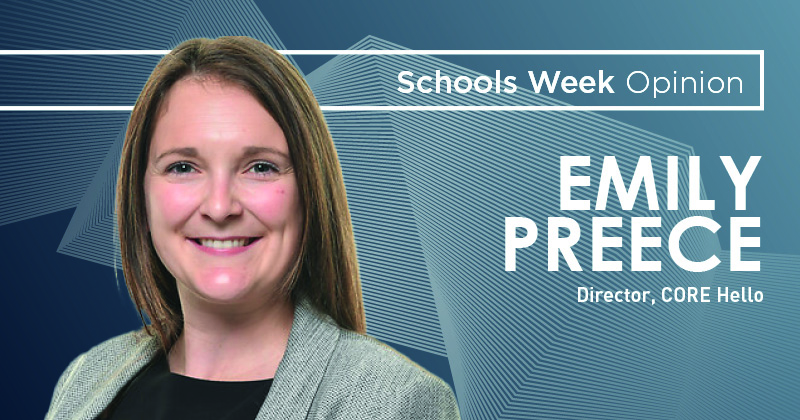Look through the pages of Schools Week and you will find no shortage of people calling out a crisis in school funding. This week, the Confederation of School Trusts added our members’ voice to that – but with a difference.
We are not simply calling for more money – although that would be welcome. Indeed, new research we have commissioned from international economic consultants strongly makes the case for the massive economic benefits of investing in education.
CST also believes that we need to reform how money is funnelled through our school system to ensure it is distributed fairly, transparently and consistently. We have put forward proposals for changes to the national funding formula, capital funding, emerging policy objectives and special educational needs and alternative provision.
SEND is an area that clearly needs reform. Dozens of local authorities are working with the DfE to plug holes in their support budgets, and families can face a war of attrition in getting the right support for their children. Even where children receive an Education Health and Care Plan, suitable school places are extremely hard to find. Staffing in specialist settings is also under massive pressure.
We have previously advocated for a significant mindset shift in SEND. We need to move on from the deficit narrative built around a medical model of disability to a more inclusive and socially affirmative narrative of human flourishing. This means that a child should not have to fail before being able to access additional funding.
Our Funding Futures report calls for the national funding formula to be reformed so that it supports the ordinarily available provision expected in an inclusive mainstream school and can be used to meet the basic running costs of a special school or AP setting, replacing today’s out-dated £10,000 per place funding model which fails to reflect actual costs.
Too many trusts face a moral dilemma of wanting to help but facing a budget black hole
High-needs top-up funding should then resource the agreed “additional or different” provision, especially where this is captured in an Education Health and Care Plan. SEND funding bands, whether national or local, should relate to agreed provision, not a statement of need.
These allocations need to be maintained in real terms or the commissioned provisions revised through consultation between schools, local authorities and families. Too many trusts face a moral dilemma of wanting to help and support families in their communities, but facing a budget black hole for doing so.
The current ‘Safety Valve’ and ‘Delivering Better Value’ programmes may well prove painful to implement in the short term, but longer term they have the potential to provide evidence of good practice, and to inform understanding of the real cost of delivery.
Needs change for some children, while others remain stable over time. The funding system should be able to better respond to both and to have capacity for early help and intervention, as well as preventative support where this will make a difference. Those requiring long-term support should be able to expect stability of funding as the default without the need for bureaucratic hoop-jumping.
We also have to make sure funding goes as far as possible, with the sector bearing a responsibility to make sure we are sharing best practice. This week’s NFER report details how trusts are already making great progress in this area, reimagining the role of SENCOs and changing how provision can be delivered across and between trusts.
As well as shifting funding, central and local government also need to embrace those changes in how provision is managed and delivered – such as how they work with trusts that cross council boundaries – to make sure that children can reap the benefits.











